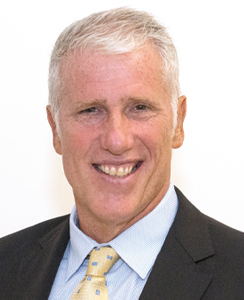My Baptist journey to interfaith work
Rev. Paul Brandeis Raushenbush shares how the Baptist concept of “soul freedom” influenced his life and career.

By Rev. Paul Brandeis Raushenbush
All second-year students at my seminary in New York City were required to take Field Education, and I was urged to work in a church. I wasn’t so sure, but my adviser encouraged me to think expansively; and so I found myself in the Social Hall at Union Theological Seminary sitting across from a pastor and the head of the lay leadership at a small Baptist church in Manhattan.
It shouldn’t have surprised me that the most exciting position was in a Baptist church. The reason I was at seminary at all was because of Judson Memorial Church in the Village. When I arrived in New York in the late 1980s, my cousins invited me to come, and although I wasn’t very “churchy,” I had majored in religion in college and was experiencing something of a spiritual awakening. And so I went.
Judson had a preacher, the Rev. Howard Moody, who had been involved in justice work in the Village for decades, including in abortion rights in the pre-Roe era, and it was also famous for the Judson Dance Project in the 1960s. On Sundays, I heard stories of Jesus alongside radical sermons on racial and economic justice, I saw a safe space for LGBTQ people and spent volunteer hours creating needle cleaning kits for IV drug users so that their addiction would not also result in AIDS infection. It was at that church that someone urged me to go up to Union Seminary, saying they thought I might make a good minister. I doubted it, but two years later, when it came down to making a decision on where to do my field education placement, I went with the Baptists.
The pastor of Madison Avenue Baptist, the Rev. Mike Easterling, described it to me as a “subway church” — on Sunday morning attendance was about the same number of people that could fit in a subway car in New York City, and we were just as diverse. At that church, we had unhoused people on the program committee alongside Upper East Side matrons and greeters on Sunday morning that included a corn-fed midwestern church woman in tandem with a dancer from Japan who spoke almost no English.
I did a research project with our membership, asking for three words to describe God, three words to describe Jesus and three words to describe our church. There was almost no overlap of understanding of God or Jesus, but complete agreement of words to describe the church, including home, respect, loving and freedom.
It surprised me, but not the pastor, who delighted in explaining the Baptist concept of “soul freedom.” The orthodoxy that mattered to the church was not that everyone believed the same thing about God but that they treated each other with mutual respect, caring, and welcome. I eventually was so moved by this idea and by the love of the members of that church that I was rebaptized and eventually ordained in the Baptist tradition. At my ordination I asked a cousin from the Jewish branch of my family to offer a prayer, and she delighted in being present and offering her blessing on my different but equivalent tradition.
The example of my church that combined soul freedom with a mandate to recognize and respect people who are different from ourselves is what I long for in my country and informs my work as a Baptist minister and as the president of Interfaith Alliance. For almost three decades, Interfaith Alliance has brought people together from the widest possible range of faith and no faith, to build a nation that does not require that we believe the same thing, or look the same way, or love a certain way in order to be treated with equal respect and dignity under the law.
I thank the small Baptist subway church for teaching me that such a vision is possible and beautiful, and I continue to work for the soul freedom of all as we all find our seats together in that big, messy, but potentially glorious subway of our country.
The Rev. Paul Brandeis Raushenbush is president and CEO of Interfaith Alliance. An ordained Baptist minister, he is the great-grandson of the first Jewish Supreme Court Justice, Louis Brandeis, and great-grandson of Baptist theologian Walter Rauschenbusch.
This column first appeared in the winter 2022 edition of Report from the Capital. You can download it as a PDF or read a digital flip-through edition.




